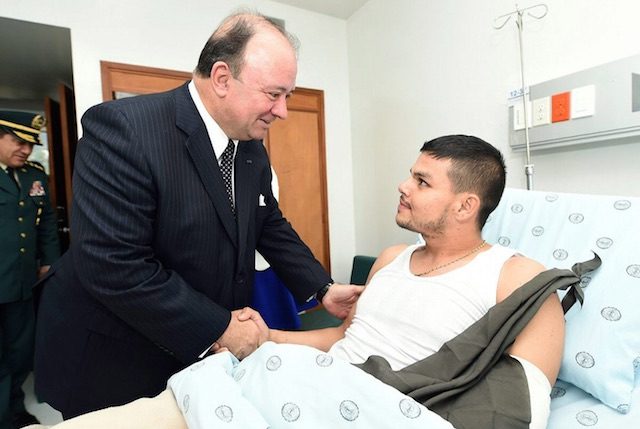SUMMARY
This is AI generated summarization, which may have errors. For context, always refer to the full article.

BOGOTA, Colombia – War-weary Colombia celebrated Monday, July 20, the start of a FARC rebel ceasefire after a half-century of hostilities, with hopes still high that its fragile peace process can hold.
Marxist FARC guerrillas freed a captive soldier Sunday, July 19, in an apparent goodwill gesture hours before they started observing the unilateral ceasefire.
“The challenge of achieving peace still looms large,” President Juan Manuel Santos said at a ceremony marking independence day, hours after the truce began at midnight.
The FARC is Latin America’s largest and longest-fighting insurgency.
Fitful peace talks have been taking place since 2012 in Havana, but fighting has continued and even intensified this year. And Colombians have gradually grown disillusioned with the peace process.
Santos has said he will negotiate for four more months and then decide whether to continue.
“Despite all the trouble and stumbling blocks, we are going to keep doing out utmost so that that conflict which has affected so many of you, even forced many of you to leave the country, draws to a close once and for all,” Santos said in the speech released on his office’s website.
This time could the rebels’ last chance, according to the president.
If they do not live up to their truce, and there is no progress on the issue of what kind of punishment would be applied to the rebels under a peace accord, the peace process will fall apart for good, Santos has said.
The government has pledged to scale back military operations during the rebel truce and work toward a bilateral ceasefire, which would have to be overseen by the United Nations.
The most critical issue is that under a peace accord, the rebels must accept punishment that will “deny them freedom.” Without this, there can be no deal, according to Santos.
He promised the government would be very flexible.
One possibility is that only senior FARC commanders go to prison, and the rest of the rebel army – totaling about 8,000 fighters – would be punished with detention on special rural estates or house arrest.
Santos said work will start this week on ways to protect rebels who lay down their arms.
This is important, as the government wants to avert a repeat of what happened in the 1980s and 1990s, when some 3,000 members of a different rebel group that disarmed were killed by rightwing paramilitaries. – Alina Dieste, AFP / Rappler.com
Add a comment
How does this make you feel?
There are no comments yet. Add your comment to start the conversation.